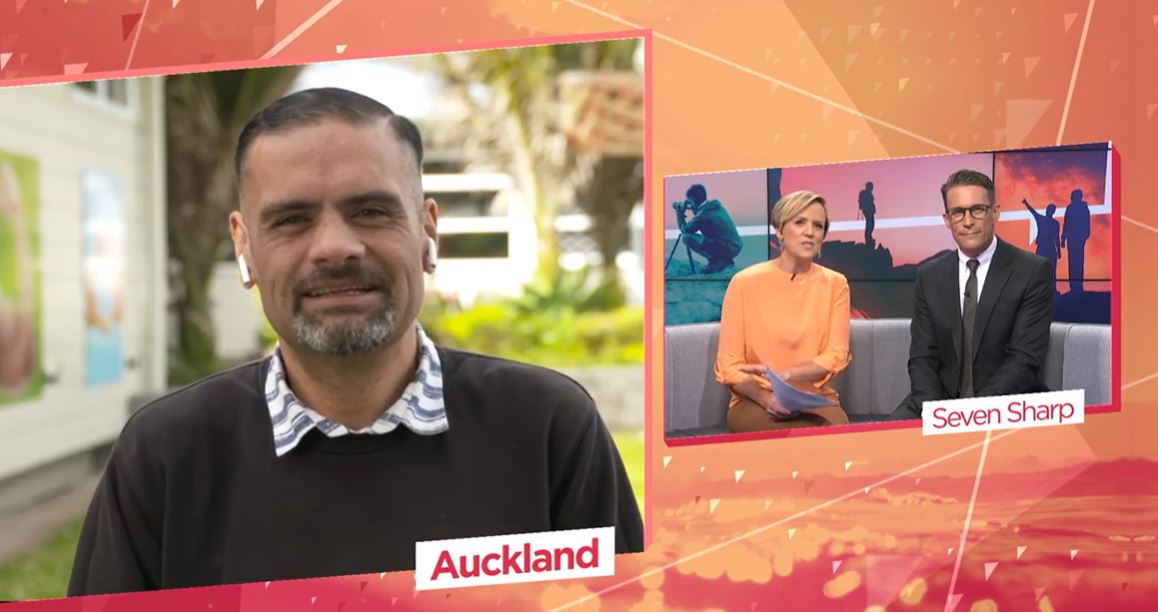
Rowandale School Principal Karl Vasau on TVNZ1's Seven Sharp (screenshot).
<h2>A Ministry of Education study had found learning to read on a device reduces the enjoyment of reading for Kiwi children.</h2>
<p>The study found, ‘a significant relationship between the frequency of digital teaching activities and how much students liked reading’. Findings showed students who took part in three or more digital reading activities at least once a week, liked reading less than those who read from books.</p>
<p>This is the latest in a series of MoE reports investigating why reading standards among Year 5 students in New Zealand have dropped according to the Progress in International Reading Literacy Study (PIRLS).</p>
<p>TV1’s Seven Sharp picked up on the findings and spoke to principal of Rowandale School in Manurewa, Karl Vasau. He said his school was making efforts to switch more pupils off digital reading and back to books, but that all forms of reading practice should still be applauded.</p>
<p>Vasau said, “We encourage children to experience many different platforms to improve their reading. One of the ways we can encourage them to read books is by making sure we provide the <a class="wpil_keyword_link" href="https://www.schoolnews.co.nz/2015/10/developing-opportunities-at-school-with-a-view/" title="opportunities" data-wpil-keyword-link="linked" target="_blank">opportunities</a> for making these books come alive, by acting stories out, for example.</p>
<p>“In order for our children to enjoy reading books, we need to model reading as teachers and parents. For some of our Pacific families, that may be picking up a bible or for some families, reading a newspaper. The more we model reading, the more our children will embrace it.”</p>
<figure id="attachment_18066" aria-describedby="caption-attachment-18066" style="width: 300px" class="wp-caption alignnone"><img class="size-medium wp-image-18066" src="https://www.schoolnews.co.nz/wp-content/uploads/2020/12/Pupils-reading-on-tablet-300x200.jpeg" alt="" width="300" height="200" /><figcaption id="caption-attachment-18066" class="wp-caption-text">Image: Copyright Monkey Business adobestock.com</figcaption></figure>
<p>The last PIRLS survey in 2016 showed Kiwi students were the most likely to have access to computers available during reading lessons (93%), compared to Australia (75%), the United States (70%) and Singapore (55%). Yet New Zealand students’ reading levels scores were lower than these same countries, with NZ coming 32<sup>nd</sup> out of the 50 countries involved in the study.</p>
<p>Kiwi students were the most likely in the world to be asked to look up information online and write on a computer during reading lessons. They were joint-first alongside Australia, when it came to being asked to read on computers.</p>

Te Akatea Inc., the National Māori Principals’ Association has released a discussion paper reflecting on…
AI could help support attendance strategies with data analysis and more for schools looking to…
Stuffy, poorly ventilated spaces can lead to reduced concentration, reasoning, and memory performance, writes Dr…
Fitness has been made fun and accessible following a student-led push for outdoor gym equipment…
A central Auckland preschool has teamed up with a street artist to create an interior…
Since 2015, fewer students are completing secondary school, defined as remaining enrolled in education until…
This website uses cookies.